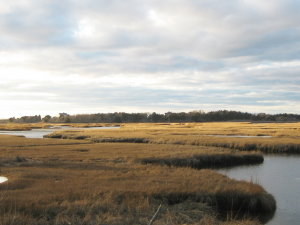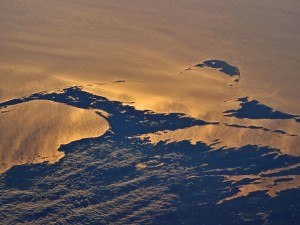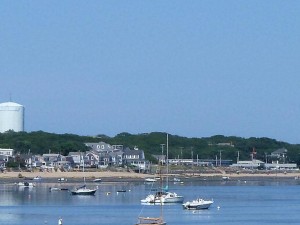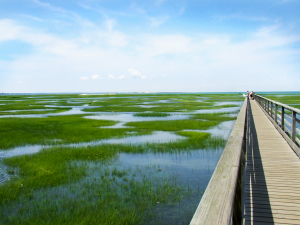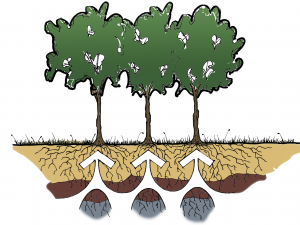Overview
Across Cape Cod, nearly 6 million pounds of fertilizer and 1.3 million pounds of pesticides are applied annually. When applied to repel or destroy certain undesired organisms, pesticides can migrate into surface waters, groundwater, and the atmosphere where they can pose risks to the integrity of drinking water supplies and the health of humans, non-target species, and aquatic ecosystems.
Fertilizers promote plant growth by adding nutrients to soil (typically some combination of nitrogen, phosphorus, and potassium). Excess nitrogen from fertilizer is readily converted to nitrate in the subsurface, which poses several human health risks and is regulated under the Safe Drinking Water Act. Nitrogen and phosphorus also act as limiting nutrients in marine and freshwater systems respectively, and because of this fertilizer runoff to nutrient limited water bodies can lead to excess growth of algae and nuisance plants in a process called eutrophication.
The 2014 Cape Cod Pesticide and Fertilizer Use Inventory drew upon data from a variety of sources and concluded that individual homeowners are the largest users of both pesticides (more than 80%) and fertilizers (69%), golf courses are the second largest users of pesticides (9.3%) and fertilizers (17.1%), while managing utility rights-of-way only accounts for 1.1% of Cape-wide pesticide use.
The Cape Cod Commission has previously worked to address various pesticide and fertilizer sources, including Golf Courses (1990), commercial and municipal applicators, and utility operators.
To address nutrient over-enrichment of inland coastal waters, the Cape Cod Commission nominated the entire Cape as a District of Critical Planning Concern (DCPC) for turf fertilizer management. The DCPC allowed municipalities, within a specific time window, to voluntarily adopt enforceable regulations governing the application of turf fertilizer within their own towns. The towns of Barnstable, Brewster, Chatham, Eastham, Mashpee, and Provincetown adopted local nitrogen-oriented regulations in Fall 2014. The towns of Falmouth and Orleans had grandfathered nitrogen bylaws. Orleans added phosphorus to its nitrogen bylaw through the DCPC.
The Commission continues to engage with the Massachusetts Department of Agricultural Resources, EverSource (formerly NStar) and other interested parties relative to EverSource’s use of herbicides in utility rights-of-way. Ongoing activities include reviewing Yearly Operational Plans, monitoring the progress of the Eversource Vegetation Management Plan (VMP), which aims to advantage preferred plant species over undesirable species through targeted-use of herbicides to control aggressive vegetation, and working with EverSource to develop a water-quality monitoring program to evaluate potential impacts of herbicide applications on public water supplies.
Contact
-
Tim Pasakarnistim.pasakarnis@capecodcommission.org
